Dagon: by H. P. Lovecraft
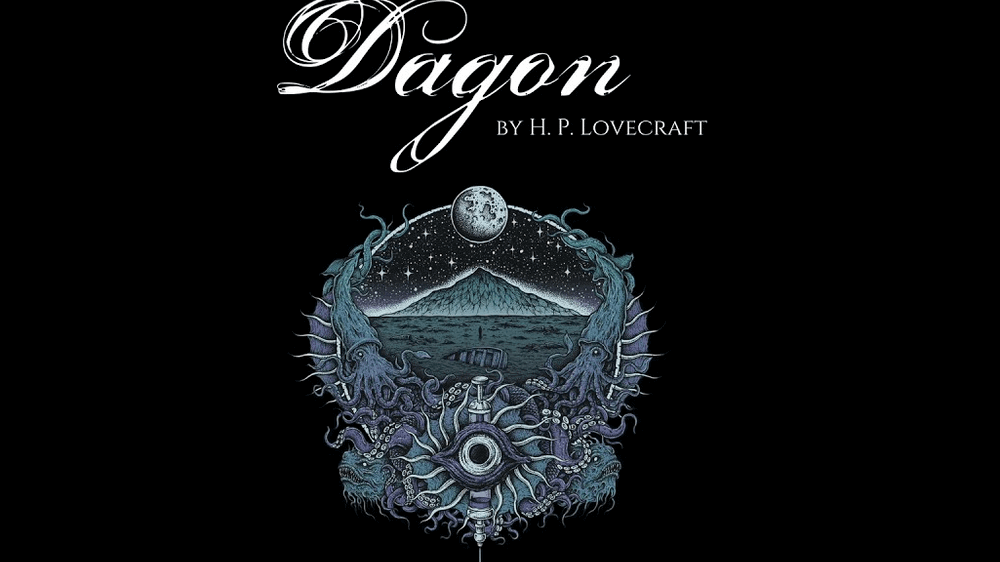
Dagon: by H. P. Lovecraft - Booklet of Living Madness
Games based on the works of Phillip Howard Lovecraft are not a new phenomenon. The atmosphere of irreversible insanity, grotesque aesthetics mixed with a palpable aquaphobia through the pages - this is what Lovecraft bribed, remembered and sometimes fell in love with.
This time the review included Dagon: by H. P. Lovecraft, a short rendition of Lovecraft's acclaimed stories. The game is quite small, it will take you a maximum of an hour and a half, but is it worth the time?
Volunteering is an honorable thing
Dagon: by H. P. Lovecraft was created through the efforts of the small Polish indie studio Bit Golem. Before retelling Lovecraftian horrors, Bit Golem released a couple of fishing simulators, a robot-sapper simulator, and in general had time to get a little hands-on. All proceeds from Bit Golem sales are donated to war victims.
The main game is more like a demo, in Steam you can download it for free. Only two add-ons with stories of the same name remain paid. The noble deed was appreciated by the community and the game was rewarded with 8500 positive reviews. However, people wrote positive reviews not only for the altruism of the developer.
A book, an audiobook... a video book
Dagon: by H. P. Lovecraft welcomes players with the familiar trappings of Lovecraftian prose: a decrepit interior, a wobbly table, and a kerosene lamp that barely illuminates the mess on the table.
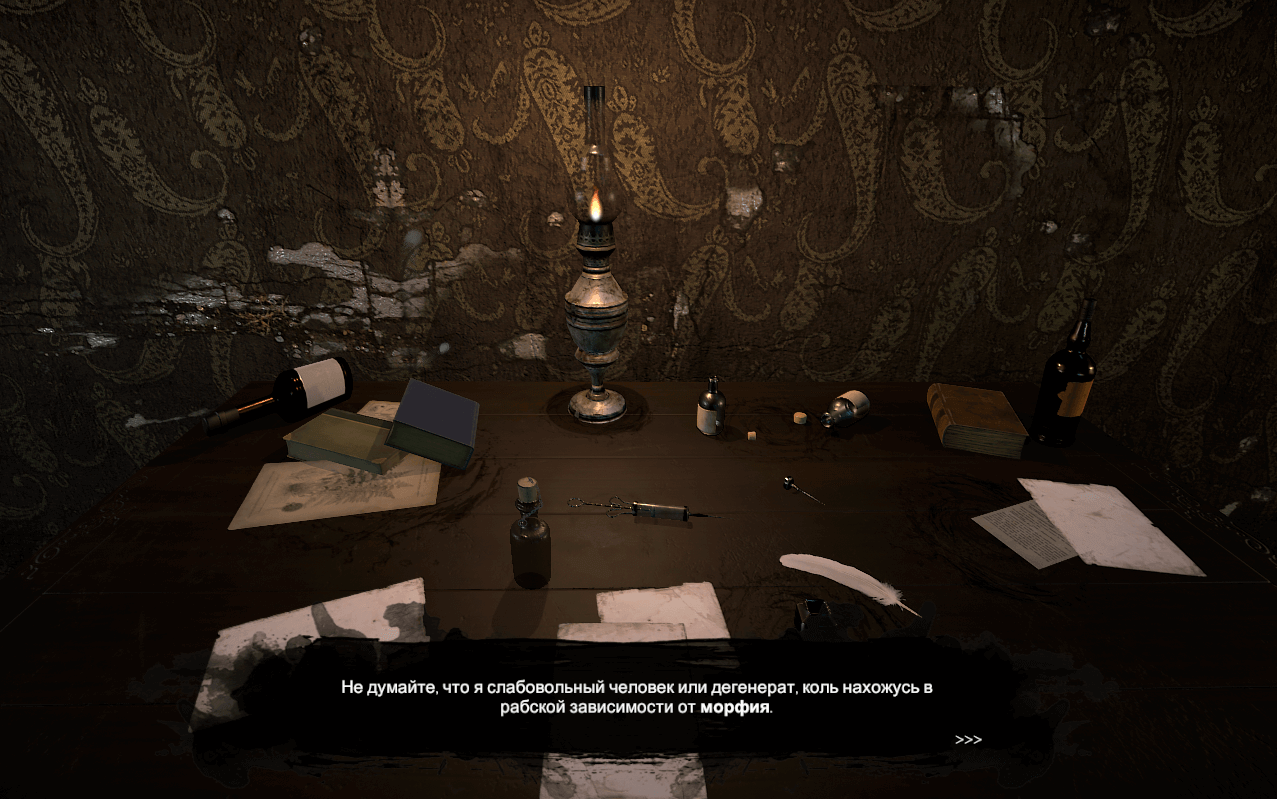
The protagonist, as in most of Lovecraft's stories, confesses that he is writing his last letter. And, as befits a Lovecraftian story, the narrative is presented in a diary format.
Dagon: by H. P. Lovecraft is almost devoid of interactivity, but has a recognizable atmosphere, Lovecraft's own voice-over narration and stylized slides. The game's protagonist apparently can only walk in words, so the player only has to look at the animated works.
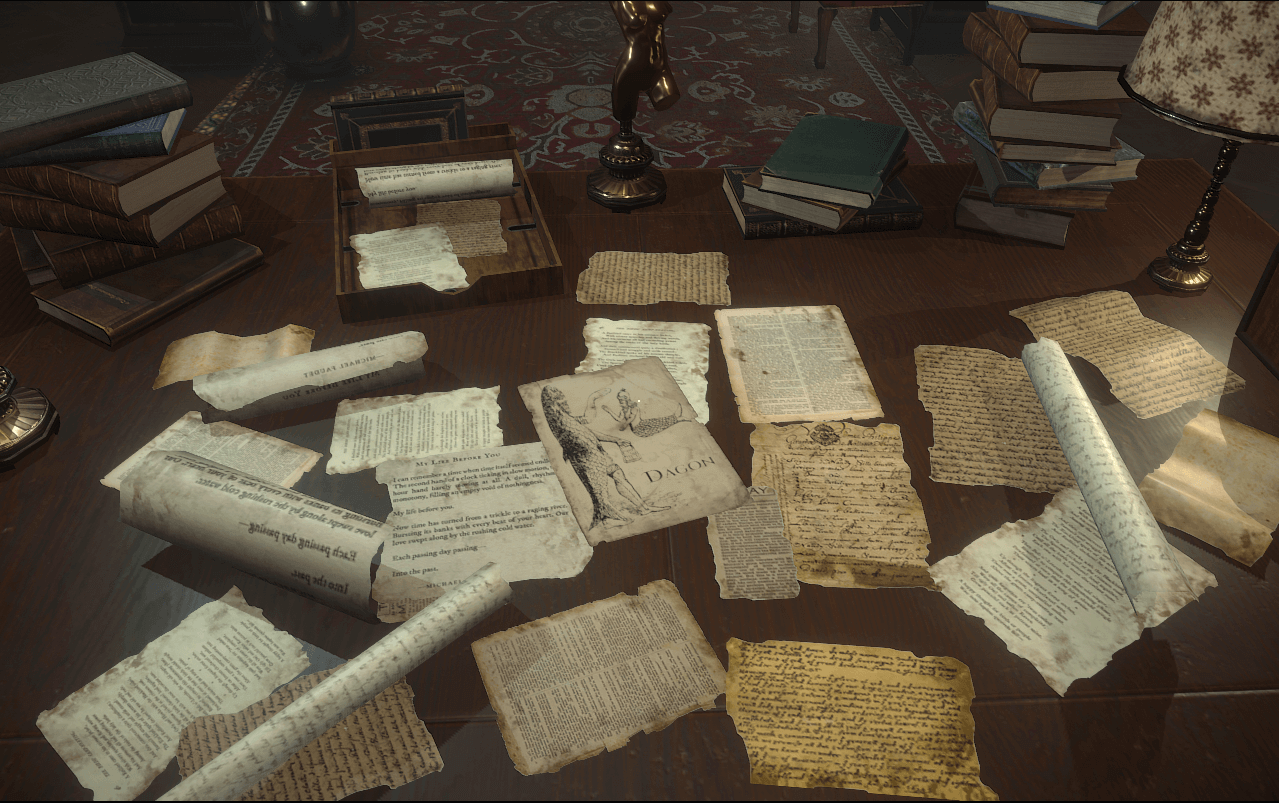
In the hour you spend in the game, you will be led by the hand through places familiar from the stories. These places will be shown in a different sequence than in The Call of Cthuhlu, and the misadventures of the hero are more like a cartoon collective image of all the plot patterns of the writer, rather than a literal retelling. Familiar characters are almost never encountered, but the nasty sea monsters are not absent either.
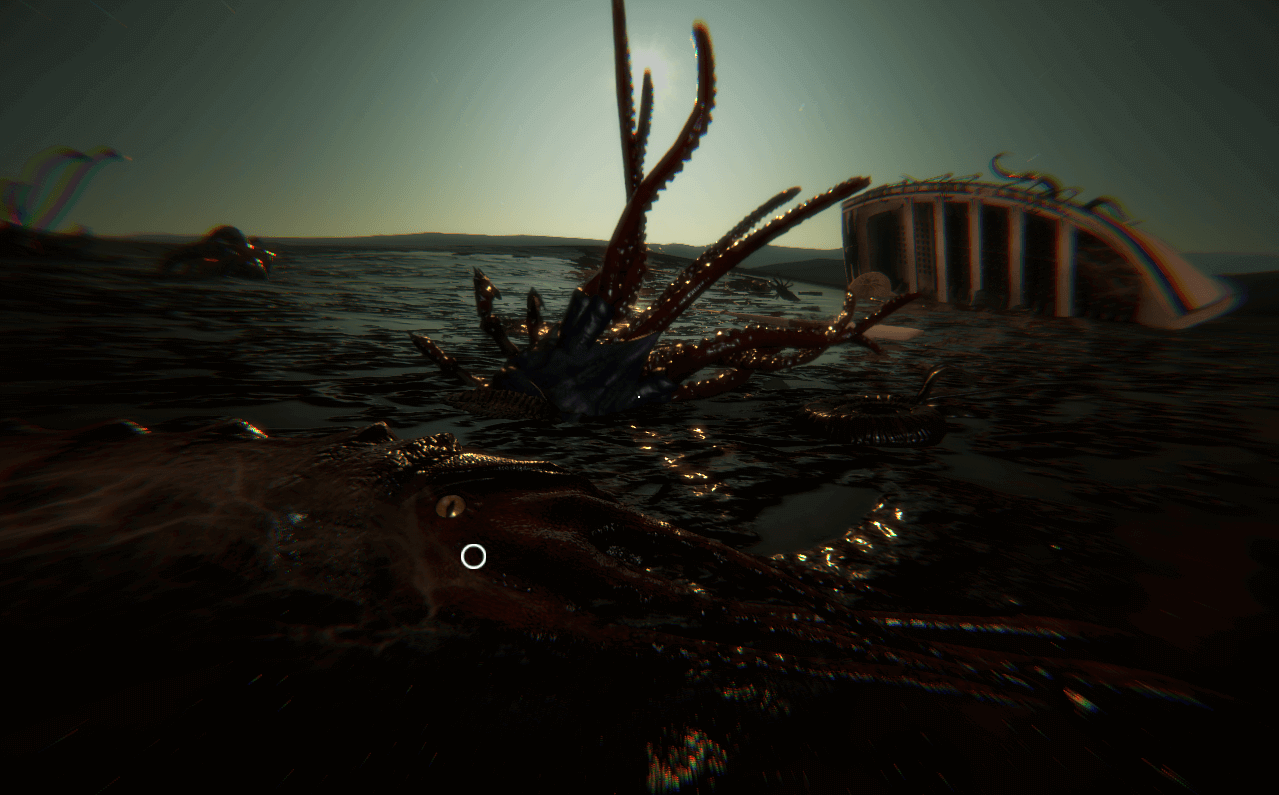
The only thing that sticks in your heart are the historical briefs. There aren't many of them, but all those few notes are interesting to read. Serving the story in notes is the lot of games of the late zero years, so Bit Golem decided to make a small excursion into history. But for an interesting read, you also need to find that read. Interesting notes are always under your nose, marked with a branch label, but become clickable only under close scrutiny.
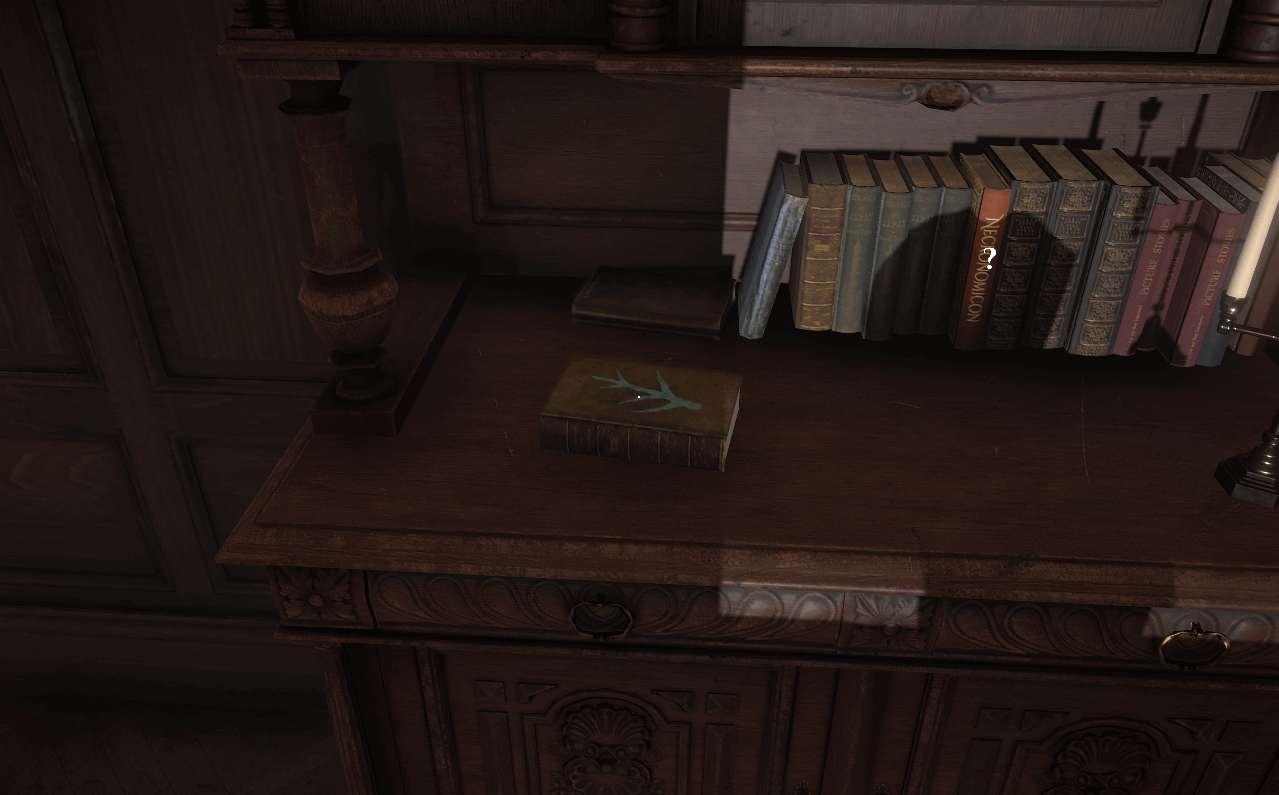
After the end credits, it's a shame that there are so few notes. There are curious things written in them: examples of Lovecraft's own copywriting, or the writer's attitude to certain things - a sort of random wikipedia section right in the game:
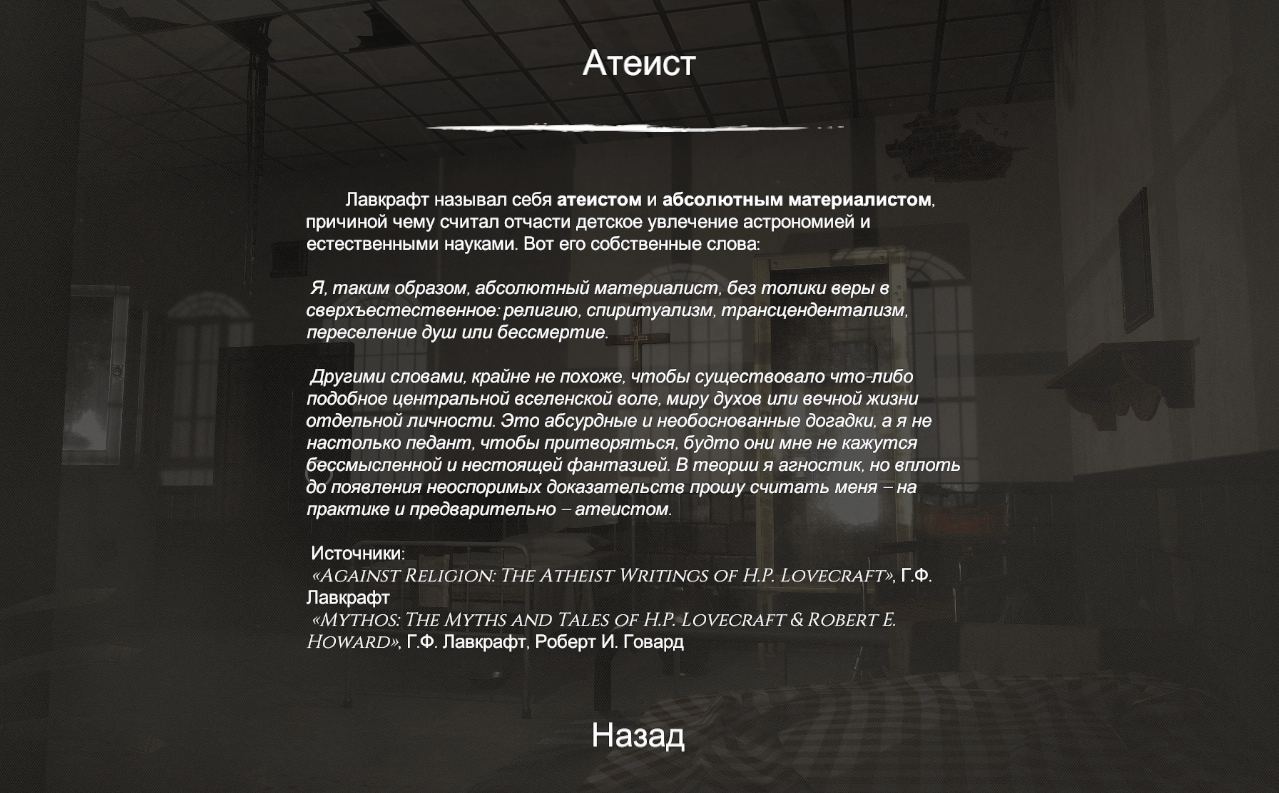
There is unacceptably little text in the game. It is not because there is not enough text to understand what is happening, but because the text is too good. The voiceover and subtitles have the Lovecraftian feel to them: high-pitched speech, full of rarely used words, the tension of the situation and non-standard turns of phrases in long sentences. Even Dagon: by H. P. Lovecraft is a verbatim quotation of Lovecraft's most famous story. What a shame that the game is so short...
